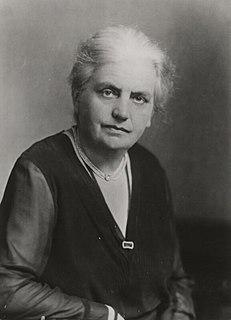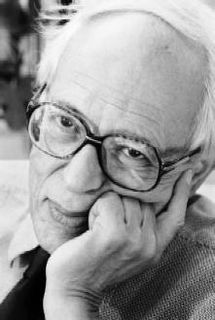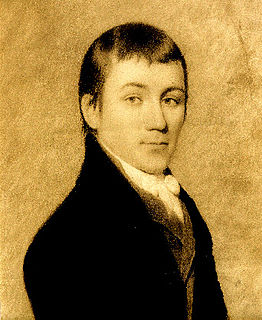Top 438 Sentiments Quotes & Sayings - Page 8
Explore popular Sentiments quotes.
Last updated on November 18, 2024.
the explanation of the ebb and flow of the women's movement ... is partly psychological. During those early post-war years when successes came thick and fast and were almost thrust upon us, the nation was still under the influence of the reconstruction spirit, when everything seemed possible ... A few years later the nation had reached the stage which follows a drinking bout. It was feeling ruefully in its empty pockets. It did not want to part with anything to anybody. Its head ached. Noble sentiments made it feel sick. It wanted only to be left alone.
Dawn Of The Dead is about how we're just a country cannibalizing itself, turning into one shopping mall, and everyone at the mall is just brain-dead, wandering around. Capitalism gone awry, and the worst parts of human nature coming out. All these different things that people read into the films that are all there, very strong anti-Bush sentiments that went into making those films. It's great. I like it when people get it the second or third time, when someone else points it out to them. They don't realize it's been there all along. Those are my favorite movies.
The integration in Germany was made easier by the fact that I am probably of the third generation. So I have undergone a process of assimilation, of Jews into German society.I lived as a child in Germany, the feeling of being surrounded by people of whom the majority had very strong anti-Semitic sentiments. But there was one very odd thing in the whole milieu in which I lived: no one accepted the stigmatization. It is quite difficult. No one, my father for instance, would ever take it seriously. He would regard anti-Semites as people of no education.
I am the greatest advocate of the Constitution....The only fault I find with the Constitution is, it is not broad enough to cover the whole ground. Although it provides that all men shall enjoy religious freedom, yet it does not provide the manner by which that freedom can be preserved, nor for the punishment of Government officers who refuse to protect the people in their religious rights, punish those mobs, states, or communities who interfere with the rights of the people on account of their religion. Its sentiments are good, but it provides no means of enforcing them.
Arraigned at my own bar, Memory having given her evidence of the hopes, wishes, sentiments I had been cherishing since last night-- of the general state of mind which I have indulged for nearly a fortnight past; Reason having come forward and told in her own quiet way , a plain, unvarnished tale, showing how I had rejected the real, and rabidly devoured the ideal;-- I pronounced judgment to this effect:-- That a greater fool than Jane Eyre had never breathed the breath of life: that a more fantastic idiot had never surfeited herself on sweet lies, and swallowed the poison as if it were nectar.
[T]he most common and durable source of factions has been the various and unequal distribution of property. Those who hold and those who are without property have ever formed distinct interests in society. Those who are creditors, and those who are debtors, fall under a like discrimination. A landed interest, a manufacturing interest, a mercantile interest, a moneyed interest, with many lesser interests, grow up of necessity in civilized nations, and divide them into different classes, actuated by different sentiments and views.
I will not deny that my heart has long occupied itself with the most tender feelings for another. So strong were these impulses that I indulged myself by thinking that if I could not have him whom I admired whom I will admit it now when I would not before I loved then I would never want another. However those are sentiments best saved for one of Lily's romances. The heart is a far more practical thing and in its life is happily capable of more than a single attachment.
I am not a complete idiot, but whether from weakness or laziness have no talent for thinking. I know only how to reflect: I am a mirror. Logic does not exist for me. I float on the waves of art and life and never really know how to distinguish what belongs to the one or the other or what is common to both. Life unfolds for me like a theatre presenting a sequence of somewhat unreal sentiments; while the things of art are real to me and go straight to my heart.
Addison writes with the ease of a gentleman. His readers fancy that a wise and accomplished companion is talking to them; so thathe insinuates his sentiments and taste into their minds by an imperceptible influence. Johnson writes like a teacher. He dictates to his readers as if from an academical chair. They attend with awe and admiration; and his precepts are impressed upon them by his commanding eloquence. Addison's style, like a light wine, pleases everybody from the first. Johnson's, like a liquor of more body, seems too strong at first, but, by degrees, is highly relished.
A learned parson, rusting in his cell at Oxford or Cambridge, will reason admirably well upon the nature of man; will profoundly analyze the head, the heart, the reason, the will, the passions, the senses, the sentiments, and all those subdivisions of we know not what ; and yet, unfortunately, he knows nothing of man... He views man as he does colours in Sir Isaac Newton's prism, where only the capital ones are seen; but an experienced dyer knows all their various shades and gradations, together with the result of their several mixtures.
Some years ago John Kenneth Galbraith wrote in an essay on his efforts at writing a history of economics: 'As one approaches the present, one is filled with a sense of hopelessness; in a year and possibly even a month, there is now more economic comment in the supposedly serious literature than survives from the whole of the thousand years commonly denominated as the Middle Ages ... anyone who claims to be familiar with it all is a confessing liar.' I believe that all physicists would subscribe to the same sentiments regarding their own professional literature. I do at any rate.
I am sure," cried Catherine, "I did not mean to say anything wrong; but it is a nice book, and why should not I call it so?" "Very true," said Henry, "and this is a very nice day, and we are taking a very nice walk, and you are two very nice young ladies. Oh! It is a very nice word indeed! It does for everything. Originally perhaps it was applied only to express neatness, propriety, delicacy, or refinement—people were nice in their dress, in their sentiments, or their choice. But now every commendation on every subject is comprised in that one word.
The ordinary politician has a very low estimate of human nature. In his daily life he comes into contact chiefly with persons who want to get something or to avoid something. Beyond this circle of seekers after privileges, individuals and organized minorities, he is aware of a large unorganized, indifferent mass of citizens who ask nothing in particular and rarely complain. The politician comes after a while to think that the art of politics is to satisfy the seekers after favors and to mollify the inchoate mass with noble sentiments and patriotic phrases.
All men are, at times, influenced by inexplicable sentiments. Ideas haunt them in spite of all their efforts to discard them. Prepossessions are entertained, for which their reason is unable to discover any adequate cause. The strength of a belief, when it is destitute of any rational foundation, seems, of itself, to furnish a new ground for credulity. We first admit a powerful persuasion, and then, from reflecting on the insufficiency of the ground on which it is built, instead of being prompted to dismiss it, we become more forcibly attached to it.
But even friendship like our heroes' Exist no more; for we've outgrown All sentiments and deem men zeroes-- Except of course ourselves alone. We all take on Napoleon's features, And millions of our fellow creatures Are nothing more to us than tools... Since feelings are for freaks and fools. Eugene, of course, had keen perceptions And on the whole despised mankind, Yet wasn't, like so many, blind; And since each rule permits exceptions, He did respect a noble few, And, cold himself, gave warmth its due.
Viewing the man from the genuine abolitionist ground, Mr. Lincoln seemed cold, tardy, weak and unequal to the task. But, viewing him from the sentiments of his people, which as a statesman he was bound to respect, then his actions were swift, bold, radical and decisive. Taking the man in the whole, balancing the tremendous magnitude of the situation, and the necessary means to ends, Infinite Wisdom has rarely sent a man into the world more perfectly suited to his mission than Abraham Lincoln.
Many of us regard ourselves as mildly liberal or centrist politically, voice fairly pleasant sentiments about our poor children, contribute money to send poor kids to summer camp, feel benevolent. We're not nazis; we're nice people. We read sophisticated books. We go to church. We go to synagogue. Meanwhile, we put other people's children into an economic and environmental death zone. We make it hard for them to get out. We strip the place bare of amenities. And we sit back and say to ourselves, "Well, I hope that they don't kill each other off. But if they do, it's not my fault.
This tree is indeed a Tree of Life, for without the higher and finer sentiments man does not life; he merely exists. If any branch of that tree does not bear fruit, the Master tells us that it shall be cut off and cast into the fire. It is the duty of all living things to produce some truly constructive labor as recognition of the divine life which is within them. God is most glorified when His children glorify His spirit within themselves.

















